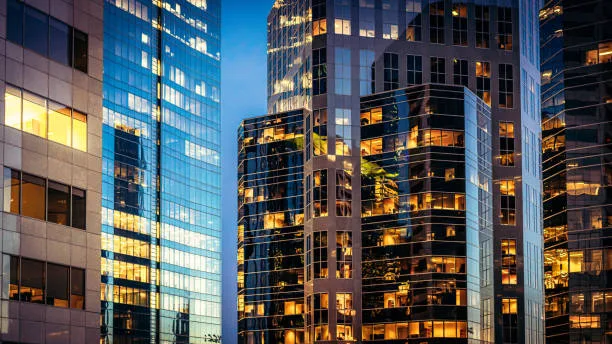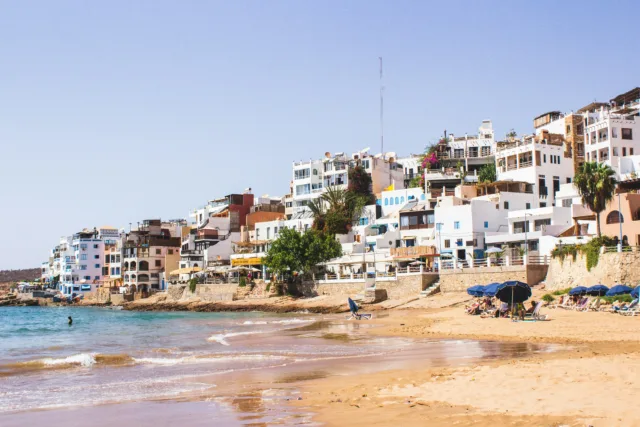
How Chinese Investment Is Reshaping Morocco’s Real Estate and Trade Landscape
Morocco has emerged as an important player on the global trade chessboard, not due to its size or military strength, but because of its strategic location, its industrial capacity and its favorable trade agreements. The country has been a popular destination for Chinese firms seeking to access European markets in recent years despite rising trade barriers. What is the result? The result? A massive influx of Chinese investment, estimated at over $10 billion, pouring into Morocco’s automotive, energy and battery manufacturing sectors.
Morocco is Africa’s largest auto manufacturing hub
Over the past two decades, Morocco quietly developed one of the most advanced automotive ecosystems in the world. The country is Africa’s largest car exporter, surpassing China by 2023. Major players such as Stellantis and Renault are already in place.
Now Chinese companies are following suit.
Gotion High-Tech, a leading EV battery maker, has set up shop in Morocco. Sentury Tire, for example, is also expanding its footprint. These investments are not just about proximity to Europe, but also about bypassing the trade tariffs that Western economies impose on Chinese goods.
A Strategic “Connector” Country
Morocco’s appeal is its free-trade deal with the European Union – a golden ticket to manufacturers who want to avoid high tariffs. Producing in Morocco is a way for Chinese automakers to avoid the 100% U.S. tariffs and up to 45% EU tariffs. They can label their products as “Made in Morocco” to gain entry to European markets.
Experts call Morocco a “connector” country, a place where foreign companies are able to establish local production while using existing trade agreements in order to reach larger markets.
Alexandre Kateb explains that Morocco has both geopolitical and infrastructure advantages. Morocco’s deepwater port, modern logistic network, and abundance of phosphate reserves — which are essential for battery production — makes it a hub for Chinese electric vehicles (EVs) manufacturers looking to expand internationally.
Geopolitical Balance Act
Morocco is on a fine line, despite the benefits of economic growth. China is on one side, offering billions of dollars in investment via initiatives such as the Belt and Road Program. The United States and European Union, who remain important partners in regional stability, security and defense, are on the other side.
China’s increasing presence includes:
- A $26 billion Nigerian-Moroccan gas pipeline made of Chinese steel
- Joint venture to produce battery components worth $2 billion in Jorf Lasfar
- Plans for Gotion’s $1.3 billion megafactory — first of its type in Africa
Morocco should be careful. Washington has warned that countries who play both sides of the fence could face consequences. Tarifcations of up to 145% were imposed on certain imports under the Trump administration. Morocco is aware that too much reliance on China can threaten its long-standing relationship with the West.
Ahmed Aboudouh is an associate fellow at Chatham House. He notes that Morocco views China as a strategic ally, but it is still acutely aware of the potential U.S. backlash in a new administration. The kingdom maintains close ties with NATO and collaborates in counterterrorism. It also hopes to purchase American F-35 jet fighters. All of these are signs that the relationship between Morocco and the West is still vital.
Morocco’s Hedging Strategy
Morocco doesn’t choose sides, it hedges. Morocco has been doing it for years. It balances diplomacy with development, and navigates between East and the West. So far, the engagement of both sides has been maintained.
Chinese investment has contributed to the development of:
- High-speed rail lines
- Solar power plants
- Tangier to get $10 billion tech park
Morocco benefits from a U.S. – Morocco Free Trade Agreement, and has strong diplomatic and military relations with Washington. Morocco has room to move with this dual-tracked strategy, at least for the time being.
This flexibility could shrink as tensions increase between China and Western nations. Donald Trump, should he return to the White House in the future, could put pressure on Morocco and other countries that are connected to it to choose a side. His past policies have already disrupted global trade chains and imposed sweeping tariffs on emerging markets.
Electric Vehicles: The New Battleground
Electric vehicles (EVs), in particular, have become the latest front in the global trade conflict.
Chinese automakers are keen to export their products worldwide. They have a leading position in battery technology, innovation and software, as well as cost-effective production. The U.S., Europe and other countries are pushing back with tariffs to protect their own budding EV industries.
Morocco is the ideal alternative. It’s a place that Chinese companies can build cars locally, then export them with Moroccan labels to avoid direct penalties.
In many ways, Morocco has become to Europe what Mexico was to the U.S. – a base of nearshore manufacturing for foreign automakers.
Real Growth, Real Investment
The economic impact of the high political stakes is real. Chinese investments in Morocco are driving job creation, industrial expansion, and technological upgrades.
Recent developments include:
Gotion High-Tech’s gigafactory is expected to become a $6.5 billion dollar project
Sentury Tire’s new plant at Tangier Tech City is part of an ambitious cluster planned for 200 Chinese firms
Jorf Lasfar is a hub for EV component manufacturing.
These projects help Morocco move towards green technologies and advanced production — goals that are aligned with the country’s broader economic vision.
What are the risks ahead?
Still, risks loom large. Morocco can only maintain its position as a connecting country if the global powers let it play both sides. If the U.S. tightens its grip on its trade policy, Morocco may be forced to limit its collaboration with China.
There’s also the question of whether these factories will serve as assembly lines primarily for Chinese goods or if they will create real value for Moroccan engineers, workers and suppliers?
The Delicate Dance of Morocco
China’s increasing presence in Morocco has more to do with strategy than economics. Morocco is stepping up to the plate as global trade fragments, and other countries are using them as intermediaries.
This role is not without its risks. Morocco must make sure that its ambitions in economics do not compromise its relationships with other countries, especially the U.S.
Morocco is still balancing the two – welcoming Chinese capital and keeping the doors open to the west. Its economic future and its place in a changing global order will be determined by whether it can maintain the balance in the years to come.
Discover our listings at: https://orchidisland.immo
Address: Rue Jbel Gueliz, Marrakesh 40010
Website : orchidisland.immo/contact-us



Leave a Reply